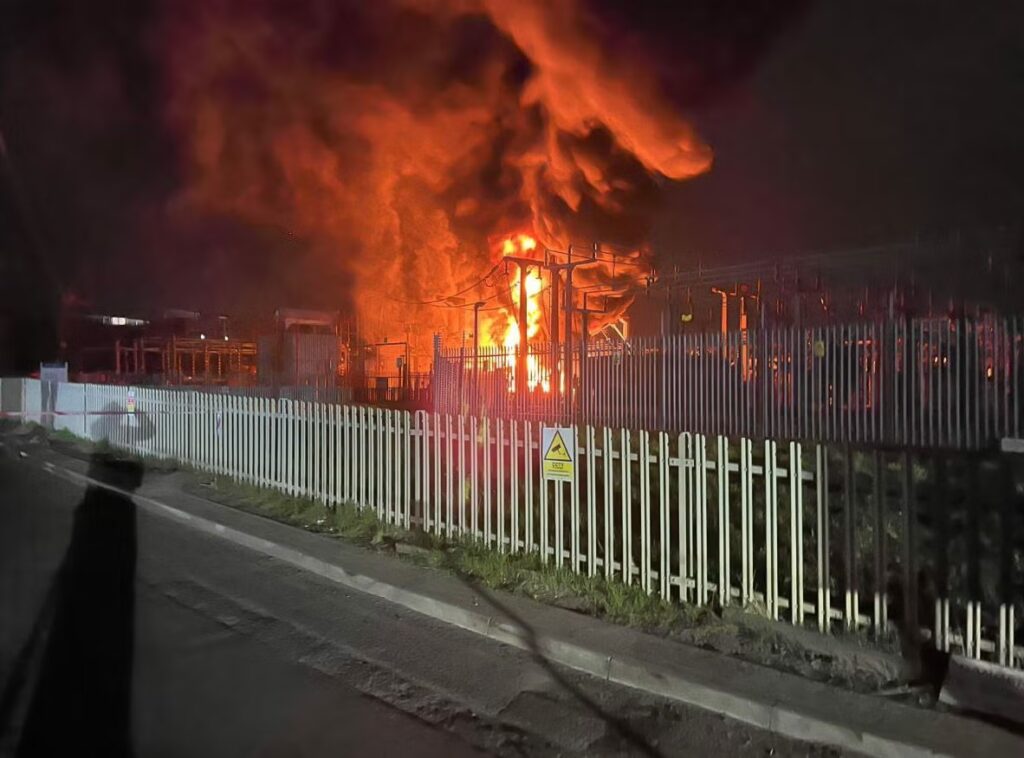Recently, Heathrow Airport faced a significant disruption when a fire broke out at the North Hyde electrical substation on March 21, 2025. The fire resulted in a large-scale power outage, causing delays to over 1,350 flights and impacting thousands of travellers.
This incident highlights an important lesson for businesses across all sectors: as we rely more on electricity to power essential services, upgrading emergency infrastructure is no longer optional, it’s a necessity.
The Growing Dependence on Electricity
As more businesses embrace electrification on their journey towards net zero in areas like heating, cooling, and even back-up systems, the risk of power failures can have severe consequences. This shift to electric systems is part of a broader move towards sustainability and energy efficiency. However, with this increased reliance on electricity, businesses must also consider the reliability of their power supply and have measures in place to ensure their operations can continue during unforeseen disruptions.
The fire at Heathrow is a stark reminder of the risks involved when power supply infrastructure fails. While the airport worked diligently to restore operations, the disruption affected not just flights, but also airport services, retail outlets, and logistics. As businesses become more reliant on electricity for day-to-day operations, ensuring there is a back-up plan in place is essential to mitigate the risk of downtime.
The Role of M&E Companies in Disaster Preparedness
M&E contractors like Hawley Building Services play a crucial role in helping businesses enhance their resilience to power disruptions. By upgrading emergency infrastructure, businesses can ensure that critical systems remain operational, even when the primary power source is compromised.
For instance, one key area for improvement is the installation of emergency power supply systems such as generators and UPS (uninterruptible power supply) units. These systems act as a safety net during power cuts, keeping essential services running until the main power is restored. Additionally, businesses should consider incorporating real-time monitoring systems to provide early detection of faults, enabling rapid intervention before a small issue becomes a major problem.
The Importance of Planning Ahead
What happened at Heathrow could happen to any business, especially those that rely heavily on electricity for their day-to-day operations. Without a solid contingency plan, a power failure can lead to expensive downtime, loss of data, or even endanger public safety. This is why investing in modern, efficient, and redundant systems should be a priority for any business, no matter the industry.
Working with an experienced M&E contractor allows businesses to tailor solutions that address specific needs, ensuring maximum efficiency and reliability. Whether through installing backup generators, optimising power management systems, or upgrading existing infrastructure, businesses can prepare themselves for power failures and continue operations with minimal disruption.
Conclusion
The fire at Heathrow is a reminder that no business is immune to power failures, and that it is essential to prepare for these disruptions. By working with an M&E contractor to upgrade emergency power systems and ensure your infrastructure is resilient, you can protect your business from the risks associated with power outages.
At Hawley Building Services, we understand the complexities of modern infrastructure and are here to help businesses stay prepared for any emergency. If you’re looking to upgrade your emergency systems or need advice on how to make your business more resilient to power disruptions, don’t hesitate to contact us. We can help you develop a tailored plan that meets your needs and ensures the continued smooth operation of your business.




